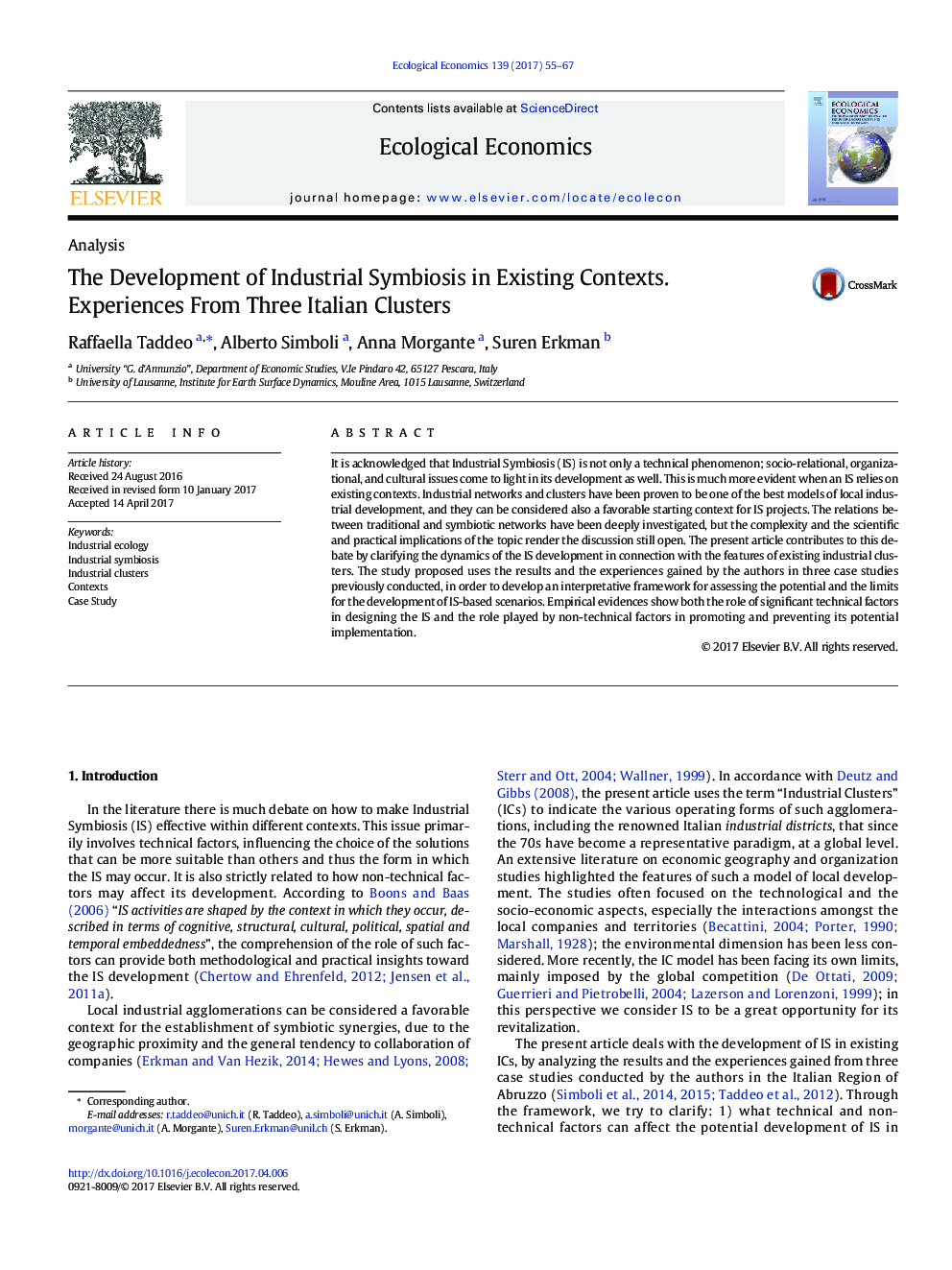| Article ID | Journal | Published Year | Pages | File Type |
|---|---|---|---|---|
| 5048802 | Ecological Economics | 2017 | 13 Pages |
â¢Socio-relational, organizational, and cultural issues come to light in IS development.â¢Industrial network and clusters are considered favorable contexts for IS initiatives.â¢The discussion on the relations between traditional and symbiotic networks is still open.â¢The article uses the results of three case studies for a comprehensive analysis.â¢A framework for interpreting the role of factors influencing the IS development is proposed.
It is acknowledged that Industrial Symbiosis (IS) is not only a technical phenomenon; socio-relational, organizational, and cultural issues come to light in its development as well. This is much more evident when an IS relies on existing contexts. Industrial networks and clusters have been proven to be one of the best models of local industrial development, and they can be considered also a favorable starting context for IS projects. The relations between traditional and symbiotic networks have been deeply investigated, but the complexity and the scientific and practical implications of the topic render the discussion still open. The present article contributes to this debate by clarifying the dynamics of the IS development in connection with the features of existing industrial clusters. The study proposed uses the results and the experiences gained by the authors in three case studies previously conducted, in order to develop an interpretative framework for assessing the potential and the limits for the development of IS-based scenarios. Empirical evidences show both the role of significant technical factors in designing the IS and the role played by non-technical factors in promoting and preventing its potential implementation.
